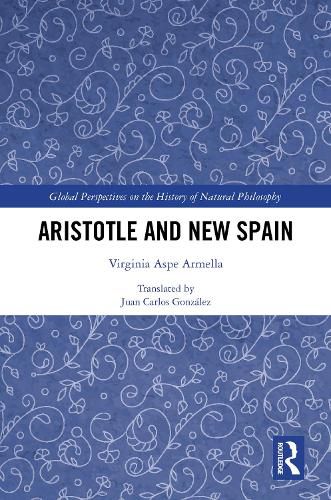Readings Newsletter
Become a Readings Member to make your shopping experience even easier.
Sign in or sign up for free!
You’re not far away from qualifying for FREE standard shipping within Australia
You’ve qualified for FREE standard shipping within Australia
The cart is loading…






This book is a detailed exploration of the Hispanic intellectual context and the different Aristotelian traditions that prevailed until the 16th century. Through a review and contextualization of Aristotelian thinkers and texts, it argues that a unique Aristotelian tradition was formed in New Spain.
The characteristic differences of Novohispanic Aristotelianism are a consequence of five factors: contact with the autochthonous cultures of America, the impact of the colonial organization, the influence of the Salamanca humanist tradition, the presence of the Italian Aristotelianism of Renaissance translators in the university curricula and in the intellectual polemics of the time, and a peculiar assimilation of primitive and Old Testament Christianity in relation to indigenous people. The book analyzes the works of Alonso de la Veracruz, Bartolome de las Casas, Bernardino de Sahagun, Sor Juana Ines de la Cruz, Carlos de Sigueenza y Gongora, and Francisco Xavier Clavijero, reconsidering them in light of the history of ideas in New Spain and the contributions of Byzantine translators. It also offers a reflection on the problem of addressing Mexican colonial sources.
This volume will be of interest to undergraduate and postgraduate philosophy students, as well as researchers focused on Aristotle, Renaissance philosophy or Latin American studies.
$9.00 standard shipping within Australia
FREE standard shipping within Australia for orders over $100.00
Express & International shipping calculated at checkout
This book is a detailed exploration of the Hispanic intellectual context and the different Aristotelian traditions that prevailed until the 16th century. Through a review and contextualization of Aristotelian thinkers and texts, it argues that a unique Aristotelian tradition was formed in New Spain.
The characteristic differences of Novohispanic Aristotelianism are a consequence of five factors: contact with the autochthonous cultures of America, the impact of the colonial organization, the influence of the Salamanca humanist tradition, the presence of the Italian Aristotelianism of Renaissance translators in the university curricula and in the intellectual polemics of the time, and a peculiar assimilation of primitive and Old Testament Christianity in relation to indigenous people. The book analyzes the works of Alonso de la Veracruz, Bartolome de las Casas, Bernardino de Sahagun, Sor Juana Ines de la Cruz, Carlos de Sigueenza y Gongora, and Francisco Xavier Clavijero, reconsidering them in light of the history of ideas in New Spain and the contributions of Byzantine translators. It also offers a reflection on the problem of addressing Mexican colonial sources.
This volume will be of interest to undergraduate and postgraduate philosophy students, as well as researchers focused on Aristotle, Renaissance philosophy or Latin American studies.